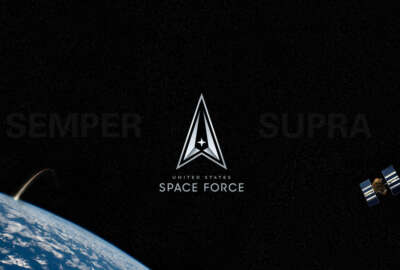A look into the secret world of the Space Rapid Capabilities Office
The office plans to award its 55th contract by the end of the year.
The Space Rapid Capabilities Office was set up in tandem with the Space Force and U.S. Space Command; during its two-year tenure, the shop has been responsible for quickly procuring some of the more secretive programs for those organizations.
Now, the Space RCO director, Michael Roberts, is sharing some of the statistics, successes and challenges the office has encountered as it’s helped bring commercial ideas from the prototyping phase to actual programs of record for the nation’s newest military branch.
The Space RCO is currently working on 13 acquisition programs, Roberts said Thursday during a National Space Security Association event. The office plans to expand to 14 programs in the near future.
“We have about five people on average on each program, that’s it,” Roberts said. “That’s the way we keep our organization small and agile. We also just put the best of the best on those programs and they are all experts in what they do and can go get it done with a smaller team.”
Roberts said his office is working eight months faster than the average Defense Department pace for awarding contracts. In the time the office has been active, it has awarded 50 contracts and expects to award five more by the end of the year.
Roberts attributed that success to pushing down responsibility.
“All authorities are maximally delegated, I can’t harp on this one enough,” he said. “It means I really don’t have a job. I delegate my authority down to my senior materiel leaders and materiel leaders who run the programs. The program managers on these in our building really have decision space for cost, schedule and performance in their portfolio. That’s it. They don’t have to come to me unless it is required by law.”
The Space RCO is also working with a billion dollar contracting authority, meaning it does not need to go out-of-house for approval until the contract exceeds a billion dollars.
“We’ve had to go outside of the office four times, and in those four times it took less than 24 hours to get approval,” Roberts said. “That’s because our senior contracting officer, Maj. Gen. Camron Holt, understands the importance of what we do and the importance of doing it rapidly.”
To increase speed, the Space RCO works closely with its board of directors to hone in on what programs need to be rapidly procured. Roberts brings his plans to the directors with a timeline and they help him resource what he needs.
The office also works closely from the beginning with U.S. Space Operations Command. SpOC helps the RCO decide what Space Force deltas will be getting the weapons systems and gives the RCO a user perspective of the products it procures.
Roberts said he still relies heavily on industry for ideas. The Space RCO does not want to dictate what the commercial world does.
“The last thing I want to do is come up to industry and go, ‘Hey, I’m going to go build this widget, and it looks exactly like this,’” he said. “That’s not how we do business. I say ‘Here is the gap we are trying to fill, you tell me how you would do it.’ That’s the way we get at making a robust industry base because there’s 1,000 different ways to solve a problem potentially. I’m looking for the best of the best and I want everybody’s opinion on that, so we kind of do it a little differently.”
Copyright © 2025 Federal News Network. All rights reserved. This website is not intended for users located within the European Economic Area.
Scott Maucione is a defense reporter for Federal News Network and reports on human capital, workforce and the Defense Department at-large.
Follow @smaucioneWFED






